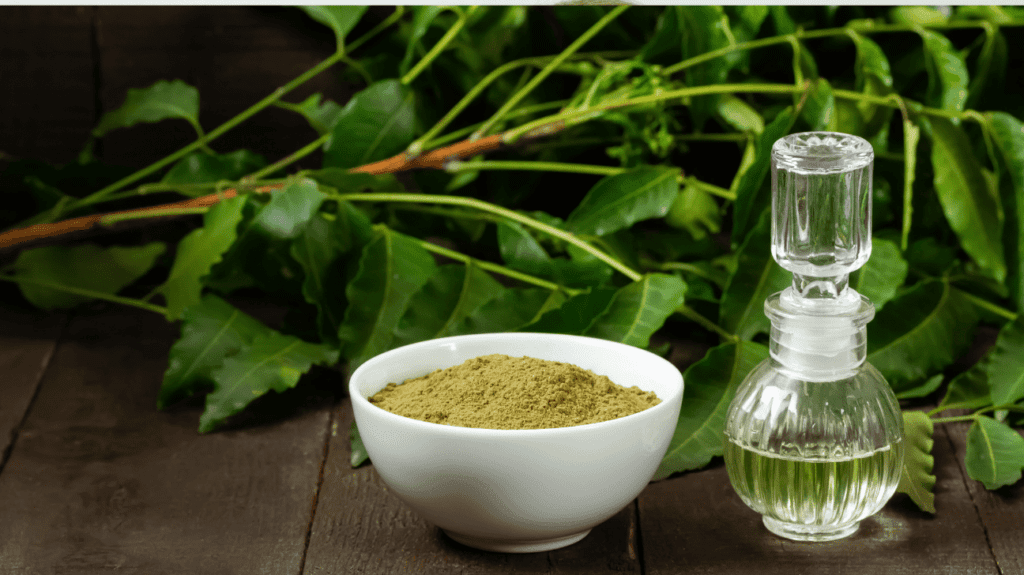Neem (Azadirachta indica), a tree native to the Indian subcontinent, has long been prized for its medicinal properties. The tree’s leaves, bark, seeds, and oil have been used in traditional Ayurvedic medicine to treat a variety of conditions, from skin issues to digestive disturbances. While much of neem’s benefits have focused on its antimicrobial, anti-inflammatory, and detoxifying effects, recent interest has emerged in its potential nootropic properties. Nootropics, commonly known as “smart drugs” or “brain boosters,” are substances that are thought to enhance cognitive functions such as memory, creativity, motivation, and focus. This article provides a detailed analysis of neem, examining its chemistry, mechanisms of action, potential nootropic benefits, appropriate dosages, side effects, interactions with other supplements and medications, and safety considerations.
You May Also Like:
Sources of Neem
Neem is most commonly found in tropical and subtropical regions, particularly in India, where it grows abundantly in the wild and is also cultivated for its medicinal uses. The plant contains a variety of bioactive compounds that contribute to its diverse therapeutic effects. These compounds are primarily concentrated in the leaves, seeds, and bark, with neem oil derived from the seeds being particularly popular in herbal and holistic health products.
- Neem Leaves: Neem leaves, known for their antibacterial, anti-inflammatory, and antioxidant properties, have been used in traditional medicine to purify blood, improve skin health, and regulate blood sugar levels.
- Neem Seeds: These are rich in azadirachtin, a compound known for its insecticidal and anti-inflammatory properties.
- Neem Oil: Neem oil, extracted from the seeds, is commonly used in skincare products and is known for its antimicrobial properties.
- Neem Bark: Contains tannins, flavonoids, and other polyphenols that contribute to its medicinal effects.
Neem can be consumed in various forms, including capsules, tablets, powders, and oils. The leaves and seeds are sometimes also consumed in traditional teas or extracts for medicinal purposes.
Support mental balance and achieve radiant skin with Neem capsules—Shop Now on Amazon!

Chemistry of Neem
Neem’s medicinal properties are largely attributed to a diverse group of bioactive compounds, including terpenoids, alkaloids, flavonoids, and fatty acids. Among these, azadirachtin, nimbin, and nimbolide are some of the most studied active ingredients. Azadirachtin, in particular, is known for its ability to modulate the immune system and inhibit the growth of various pathogens.
- Azadirachtin: This is the primary bioactive compound in neem, and it is a potent insect repellent and fungicide. It also exhibits anti-inflammatory and antioxidant effects, which may contribute to its neuroprotective properties.
- Nimbin: A tetranortriterpenoid compound, nimbin has been shown to possess anti-inflammatory, anti-arthritic, and immunomodulatory properties, making it useful for supporting overall brain health.
- Nimbolide: This triterpenoid is believed to have anti-cancer, antioxidant, and neuroprotective properties, which could make it beneficial for cognitive function.
Together, these compounds may influence a variety of physiological pathways, including inflammatory processes, oxidative stress, and neurotransmitter balance, all of which are critical for maintaining optimal brain health.

Physiological Mechanisms of Neem in the Body and Brain
Neem’s primary action in the body stems from its ability to modulate inflammatory responses and protect against oxidative stress. Both of these processes are essential for maintaining brain health, as inflammation and oxidative damage are associated with cognitive decline and neurodegenerative diseases.
- Anti-inflammatory Effects: Chronic inflammation in the brain is one of the leading causes of neurodegenerative diseases such as Alzheimer’s and Parkinson’s. Neem’s bioactive compounds, particularly azadirachtin and nimbin, help reduce pro-inflammatory cytokines, thereby lowering the risk of chronic inflammation in the brain. This mechanism supports cognitive function by promoting neural health and reducing the likelihood of neurodegeneration.
- Antioxidant Protection: Neem contains powerful antioxidants that protect brain cells from oxidative stress. By scavenging free radicals and reducing oxidative damage, neem’s active ingredients may help prevent cognitive decline and neurodegenerative diseases. This is particularly important for individuals experiencing age-related cognitive changes or those at risk for Alzheimer’s disease.
- Neuroprotective Effects: Some studies suggest that neem’s compounds, particularly nimbolide, may help protect neurons from damage and promote neurogenesis (the formation of new neurons). This neuroprotective effect can help maintain cognitive function, improve learning, and support memory retention.
- Cognitive Enhancement: While neem’s neuroprotective properties are more established, there is emerging evidence suggesting that it may also act as a cognitive enhancer. By improving blood flow to the brain and reducing oxidative stress and inflammation, neem may boost mental clarity, focus, and memory retention.
Neem supports cognitive function and strengthens immune response—Order Now on Amazon!

Nootropic Benefits of Neem
Neem’s potential as a nootropic is largely based on its ability to combat inflammation and oxidative stress in the brain. While the research on neem as a cognitive enhancer is still limited, some preliminary findings suggest the following potential nootropic benefits:
- Memory Enhancement: The neuroprotective and anti-inflammatory effects of neem may help improve memory, particularly in individuals experiencing age-related cognitive decline. By reducing oxidative damage and promoting neuronal health, neem could contribute to enhanced memory formation and retention.
- Increased Focus and Mental Clarity: By modulating inflammatory responses and supporting overall brain health, neem may help improve focus and mental clarity, particularly during tasks that require sustained attention and cognitive effort.
- Neurodegenerative Disease Prevention: The antioxidant and anti-inflammatory properties of neem suggest that it may help prevent or slow the progression of neurodegenerative diseases, such as Alzheimer’s, Parkinson’s, and other forms of dementia. The compounds in neem, particularly azadirachtin, and nimbolide, may reduce the risk of neuronal damage and promote healthy brain aging.
- Mood Regulation: There is evidence suggesting that neem may help regulate mood by reducing stress and inflammation, both of which are linked to mood disorders such as anxiety and depression. While neem is not a primary treatment for these conditions, its supportive effects on brain health could be beneficial in maintaining overall mental well-being.

Dosage and Supplementation Guidelines
The appropriate dosage of neem depends on the form of supplementation and the intended purpose. While neem is generally considered safe when used appropriately, it is essential to follow dosing guidelines and consult a healthcare professional before beginning supplementation.
- General Dosage: The typical dosage of neem in supplement form ranges from 500 mg to 1,000 mg per day. This dosage is generally considered safe for promoting overall health and supporting cognitive function.
- Cognitive Enhancement Dosage: For nootropic purposes, dosages ranging from 500 mg to 1,000 mg per day may be effective in supporting memory, focus, and mental clarity. However, higher doses should be taken cautiously and under medical supervision.
- Neem Oil: If using neem oil for topical or oral use, it is recommended to use small amounts (a few drops), as neem oil is potent and can cause skin irritation or gastrointestinal discomfort if consumed in excess.
Neem enhances memory retention and provides powerful antioxidant protection—Buy Now on Amazon!

Side Effects and Safety
While neem is generally considered safe when used appropriately, there are some potential side effects and safety concerns to be aware of, particularly at higher doses or with long-term use.
- Gastrointestinal Discomfort: Some individuals may experience mild gastrointestinal side effects, such as nausea, diarrhea, or stomach cramps, when taking neem in large amounts.
- Skin Irritation: Neem oil can cause skin irritation or allergic reactions in some individuals. It is advisable to conduct a patch test before using neem oil topically.
- Liver and Kidney Health: High doses of neem, particularly neem oil, may have adverse effects on liver and kidney function. People with pre-existing liver or kidney conditions should consult a healthcare provider before using neem supplements.
- Pregnancy and Breastfeeding: Neem should be avoided during pregnancy, as it may have abortifacient effects. Additionally, neem is not recommended for breastfeeding mothers, as its effects on lactation are not well understood.
Interactions with Other Supplements and Medications
Neem may interact with certain medications and supplements, which could affect their efficacy or lead to adverse effects. It is crucial to consult a healthcare professional before combining neem with other treatments.
- Antidiabetic Medications: Neem has been shown to lower blood sugar levels, which may enhance the effects of antidiabetic medications. This could lead to hypoglycemia (low blood sugar) if not monitored closely.
- Immunosuppressants: Neem has immune-modulating properties, which could potentially interfere with medications that suppress the immune system, such as corticosteroids or chemotherapy drugs.
- Blood Thinners: Neem may have a mild blood-thinning effect, so individuals taking anticoagulant medications like warfarin should exercise caution and monitor their blood clotting status.
Risks for Individuals with Certain Health Conditions
While neem is beneficial for many, it may not be suitable for individuals with certain health conditions, especially at higher doses.
- Autoimmune Disorders: Neem’s immune-modulating effects could potentially exacerbate autoimmune conditions like lupus or rheumatoid arthritis. Individuals with these conditions should consult a healthcare provider before using neem.
- Diabetes: Neem may interact with blood sugar-lowering medications, so individuals with diabetes should use neem cautiously and under the supervision of a healthcare provider.
Neem promotes brain relaxation and aids in healthy digestion—Order Today on Amazon!

Should You Consider Neem as a Nootropic?
Neem offers a range of potential cognitive benefits thanks to its anti-inflammatory, antioxidant, and neuroprotective properties. While research on neem as a nootropic is still in its early stages, the plant’s ability to promote brain health and enhance memory, focus, and mental clarity makes it a promising supplement for individuals seeking cognitive enhancement. Its ability to support overall brain function, prevent neurodegenerative diseases, and improve mood regulation makes neem a valuable addition to any wellness regimen. However, as with any supplement, it is essential to consult a healthcare professional before adding neem to your regimen, especially if you are taking other medications or have underlying health conditions. With proper guidance, neem could offer significant cognitive support and mental clarity for those seeking a natural, plant-based approach to improving brain health.

References:
- What are the benefits of neem? Retrieved from: https://www.medicalnewstoday.com/articles/325048
- Neem – Uses, Side Effects, and More. Retrieved from: https://www.webmd.com/vitamins/ai/ingredientmono-577/neem
- What Is Neem Extract? Benefits, Uses, Risks, and Side Effects. Retrieved from: https://www.healthline.com/nutrition/neem
- Medicinal properties of neem leaves: a review. Retrieved from: https://pubmed.ncbi.nlm.nih.gov/15777222/
- Azadirachta indica ethanolic extract protects neurons from apoptosis and mitigates brain swelling in experimental cerebral malaria. Retrieved from: https://pmc.ncbi.nlm.nih.gov/articles/PMC3844317/
Important Note: The information contained in this article is for general informational purposes only, and should not be construed as health or medical advice, nor is it intended to diagnose, prevent, treat, or cure any disease or health condition. Before embarking on any diet, fitness regimen, or program of nutritional supplementation, it is advisable to consult your healthcare professional in order to determine its safety and probable efficacy in terms of your individual state of health.
Regarding Nutritional Supplements Or Other Non-Prescription Health Products: If any nutritional supplements or other non-prescription health products are mentioned in the foregoing article, any claims or statements made about them have not been evaluated by the U.S. Food and Drug Administration, and such nutritional supplements or other health products are not intended to diagnose, treat, cure, or prevent any disease.


